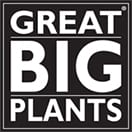When you buy fertilizer, whether chemical or organic, you’ll see three numbers separated by dashes boldly standing out on the package; such as 5-6-5. You might already know that they stand for the percentage of NPK contained in the fertilizer. N stands for Nitrogen, P for Phosphorous (Phosphate), and K for Potassium (Potash). So in our example, the fertilizer contains 5% N, 6% P and 5% K. These are the three most important macronutrients that help your plants grow, blossom and bear fruit. What you might not know, however, is that your plants need more than NPK can provide.
Here’s the scoop: Nitrogen strengthens the growth of leaves and helps convert sunlight into plant food. Phosphorous helps roots and stems develop and flowers bloom. Potassium contributes to the overall health of the plant, disease resistance, and water intake. The NPK ratio in fertilizers is often customized for particular plants, for example, tomato fertilizers tend to have more P and K to promote blossoming and fruit set.
What NPK is Missing
Liebig’s Law of the Minimum, often simply called the Law of the Minimum, is a principle developed in agricultural science popularized by Justus von Liebig in the mid 1800s and often depicted as a barrel with broken staves. It states that growth is controlled not by the total of resources available, but by the scarcest resource (limiting factor). This concept was originally applied to plant or crop growth, where it was found that increasing the amount of plentiful nutrients did not increase plant growth. Only by increasing the amount of the limiting nutrient (the one most scarce in relation to “need”) was the growth of a plant or crop improved. This principle can be summed up as, “Growth is proportional to the amount of the most limiting nutrient, whichever nutrient it may be. Likewise a plant’s growth is restricted by the lack of a single element, even though there may be sufficient quantities of all other essential nutrients.”
Put another way – plants need certain other macronutrients, micronutrients and trace elements, in addition to NPK. Some of these, including sulfur, calcium, and iron, are sometimes in store-bought fertilizers, but most often are not.
Other elements, like carbon dioxide and oxygen, are available in the air and water. You must have well aerated soil for these elements to properly interact with plant roots.
You may have had the experience of your garden plants looking sickly even though you are using the same fertilizer and at the same rate as previous years when everything looked great. What could be happening is that you have overdrawn your account at the Soil Bank.
Think about your garden soil as a bank where you save up nutrients for your plants. You start out with some naturally occurring nutrients and add fertilizer containing NPK, and maybe some other nutrients. Your plants will withdraw all the nutrients it needs (if they are all available). At the end of the season, some nutrients will remain and you will replenish some, but usually not all, with your next application of NPK fertilizer. Ultimately, one or more nutrients will be depleted (your account will be overdrawn for these) and the plants will not get what they need and will not grow to optimal performance, or might even look sickly.
Make Deposits into the Soil Bank
One of the best ways to make deposits of a wide variety of nutrients into the Soil Bank is to use compost in your garden. Not only will compost contain a wide variety of micronutrients, it helps soil structure and porosity (improves aeration) and includes beneficial microorganisms. For more on the benefits of compost, see our earlier blog post.
If you aren’t into making your own organic compost or dealing with the mess and trouble of heavy bags, try our easy to apply Great Big Plants Natural Compost Extract. You will get a wide spectrum of soil micronutrients, along with humic and fulvic acids and lots of beneficial microbes all in a liquid concentrate. Think about it as overdraft protection at the Soil Bank.
While plants need Nitrogen, Phosphorous, and Potassium to thrive, they need a variety of other nutrients as well. By using Great Big Plants Natural Compost Extract to supplement NPK fertilizers, you can nourish your plants and the environment and keep your Soil Bank accounts full.
Contributed by Tom Thomas
